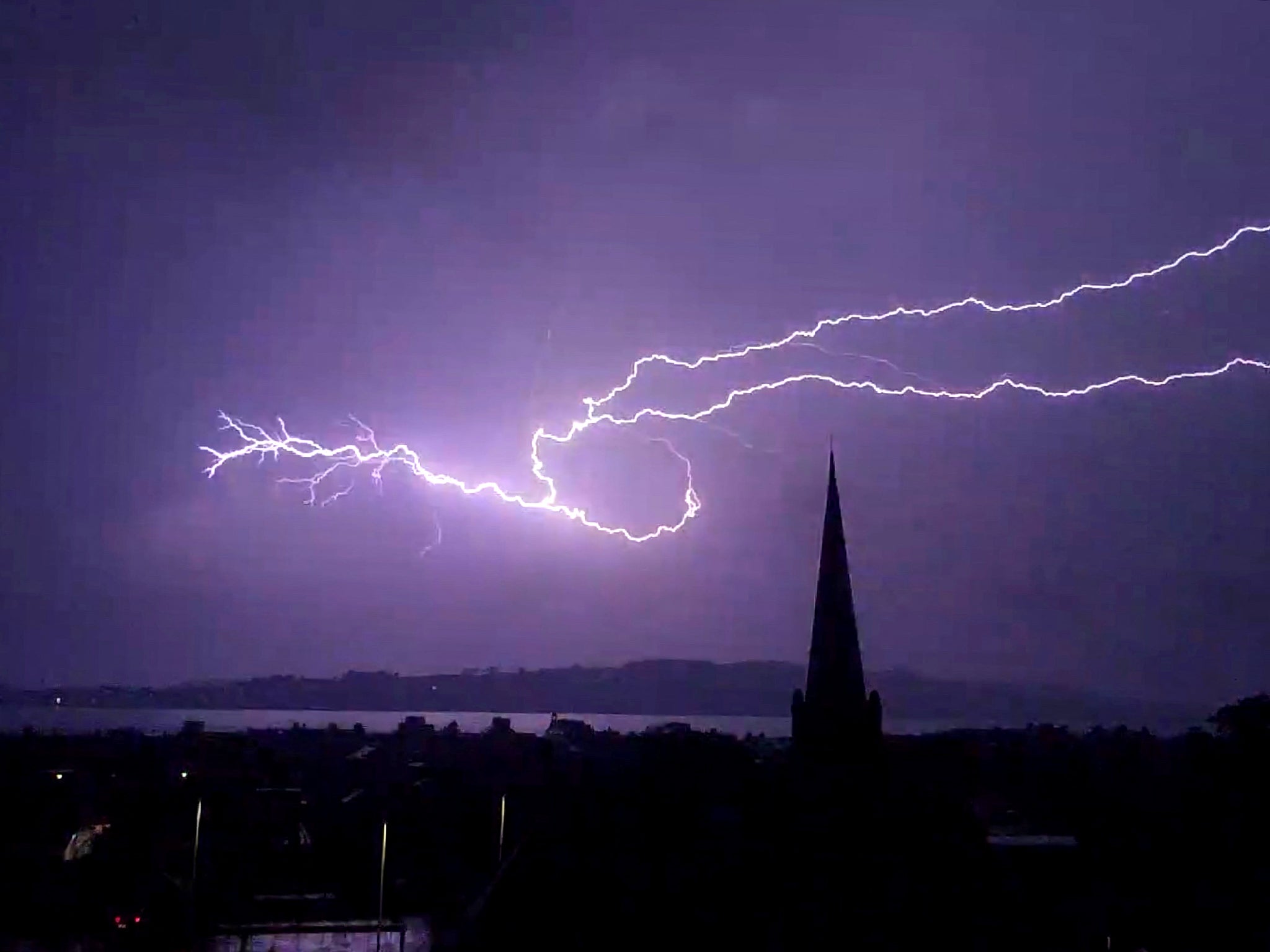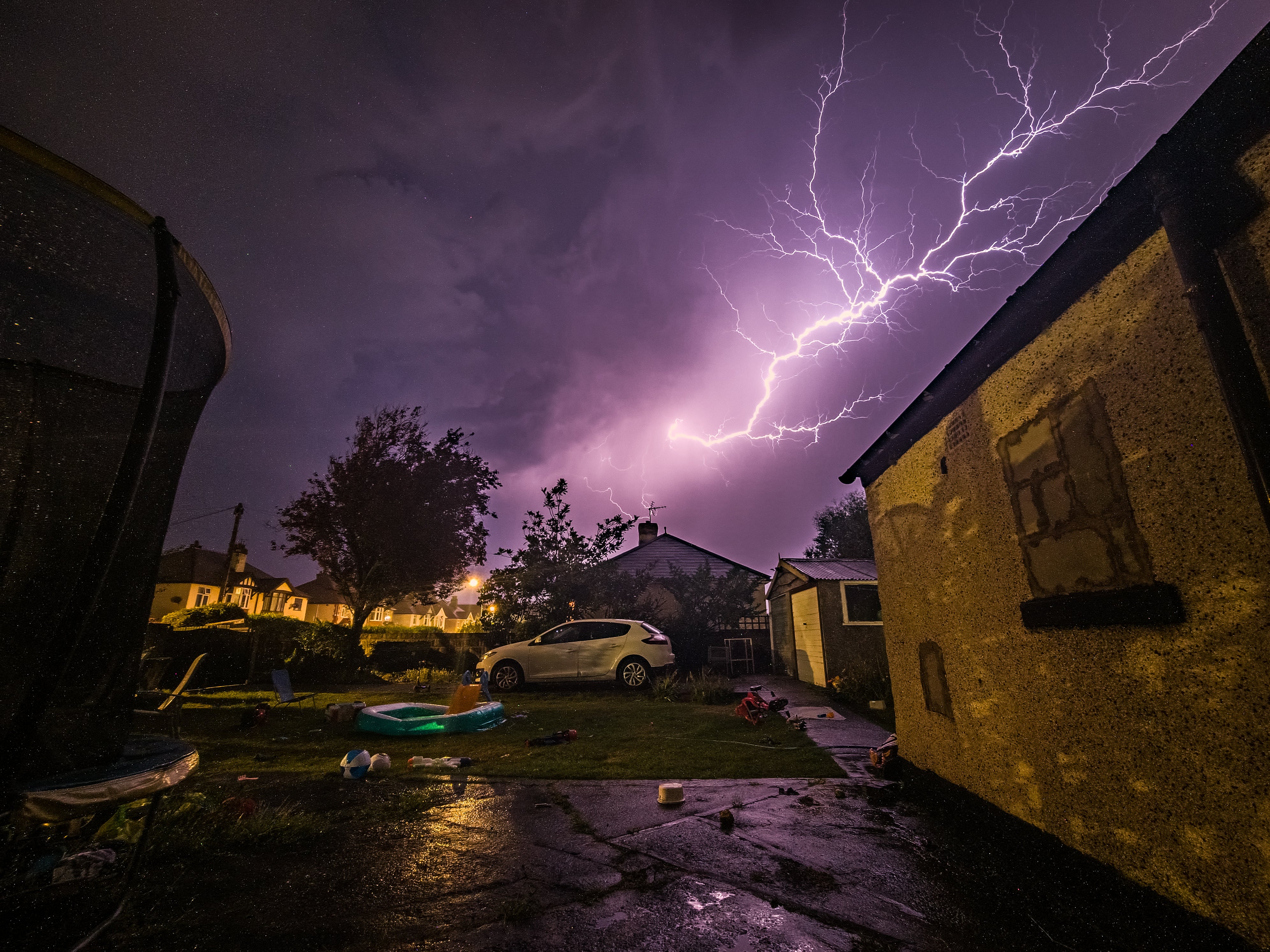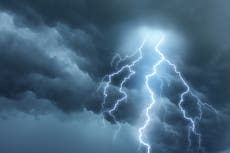What is thunderstorm asthma? Warning over ‘rare phenomenon’ as UK hit by dramatic weather change
The Met Office issued three day thunderstorm warning for most of the UK, raising concerns over impact for hayfever and asthma sufferers
Thunderstorms are sweeping the UK this week, a dramatic end to the prolonged stretch of extremely hot and dry weather.
The three-day Met Office weather warning highlights the risk of potential flash floods, power cuts and travel disruption across much of the country as the heavy rain hits.
But experts also warn there could be a rare health risk during the stormy weather, in the form of “thunderstorm asthma”.
This is where thunderstorm activity is linked to a rise in people reporting symptoms of asthma - such as in June last year - the UK Health and Security Agency explains.
Have you suffered badly from thunderstorm asthma? If so, email zoe.tidman@independent.co.uk
“We don’t fully understand why these events trigger breathing problems and this makes it very difficult to predict when they are likely to happen,” the public health body says.
“However, the air flow within a thunderstorm system is thought to be important.”
The UKHSA says it is thought pollen gets pulled up into the clouds and gets broken up into smaller particles by the moisture in the atmosphere.
“Rain then brings the tiny micro-particles down from the clouds to ground level where the micro-particles can be inhaled deep into the lungs, causing breathing problems,” it says.
Dr Sophie Farooque, an allergy specialist, issued a warning for hay fever sufferers over the “very rare phenomenon” due to the Met Office’s thunderstorm warnings.
She advised hay fever sufferers, with or without asthma, to take steps to protect themselves.
This includes remaining indoors with windows closed before and during the storm and wearing a mask if outdoors.
The UKHSA says that while everyone could potentially be at risk from thunderstorm asthma, previous instances suggest those below the age of 30 could be particularly affected.

Asthma and Lung UK, a leading lung charity, also issued a warning for asthma sufferers over the thunderstorms and high pollen forecast.
Thunderstorms could trigger symptoms in people who have asthma, it said. This was because “they smash pollen into tiny bits that go deeper into your lungs”.

Heavy showers brought an end to dry weather on Monday, causing flooding in areas of Cornwall and Devon, while storms developed in eastern counties like Essex, Suffolk and Lincolnshire.
Scotland and Wales were also affected by thunderstorms in the immediate aftermath of the UK heatwave.
The Met Office said localised areas in England and Wales will be hit by torrential rain, thunder and localised flooding again on Tuesday.
Thunderstorms remain possible on Wednesday but are forecast to strike mainly across southern and southeastern England.
Join our commenting forum
Join thought-provoking conversations, follow other Independent readers and see their replies
Comments


Bookmark popover
Removed from bookmarks